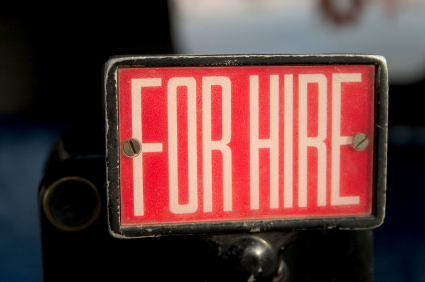Farm machinery, especially tractors, can be expensive to purchase and a questionable use of capital, particularly if only used occasionally during the year – as is the case on many small farms. The cost factor is one of the most compelling reasons to look at alternatives to outright ownership. This article will explore some of these alternatives and compare them to ownership.

Owning
Owning all of your own farm machinery does have some advantages, provided it is in good, reliable working condition. Most advantages are associated with timeliness: having the machinery on hand to do the job when it is required. Owning poorly maintained, old, undersized or unreliable machinery may hold no advantage at all.
Alternatives to owning your own:
1. Contracting
Using contractors is very common on farms, with numerous professional contractors available for a wide range of small farming tasks. Advantages of using a contractor include:
• Machinery is owned, operated and maintained by the contractor (while in most cases the farmer supplies the fuel).
• Contractors usually have better quality and larger machinery, which gets the job done faster.
• Contract rates for normal farming jobs are standardised.
• Contracting is a tax deduction for business purposes.
The main criticism for hiring contractors is the failure to get to the job done on time. A reasonable negotiation with your contractor well in advance is a good idea. When you find a reliable, quality contractor, stick with them and build a relationship. Paying their bill promptly will certainly assist here.
Small farming jobs will usually be less attractive to contractors, particularly if travel is involved, so it can be useful to pool work with your neighbours to make the job larger and more enticing.
2. Hiring
Compared to using a contractor, hiring farm machinery can save the cost of wages as your own time will be spent on the machine. Remember that it will take you longer to do the job than a contractor, as they are skilled operators doing that job every day. Most regional towns have machinery hire companies, with transport to and from being the hirer’s responsibility. Make sure prior to hiring that there is an agreement or contract in place detailing the cost of hire, replacement of parts, insurance and breakdown responsibility.
3. Hire purchase
Under a hire purchase agreement, ownership of the equipment is transferred to the farmer at the completion of payments. Similarly to leasing, the maintenance of the machine is also the responsibility of the farmer.
4. Leasing
When leasing farm machinery, ownership is retained by the finance lender. Periodic payments are made in the form of lease rentals, which are generally tax deductable. Lease terms vary, but 3-4 years is a common timeframe with a residual value at the end of the term usually 30-50 percent of the purchase price. Responsibility for the sale of machinery at the end of the lease will depend on the lease agreement. There are three types of lease agreements: operating and finance lease and contract hire.
5. Share Farming
For absentee or small farmers who do not have the time or expertise to farm, share farming can be an option. Share farming usually involves the owner providing the land while the share farmer provides the inputs, labour and marketing. In share farming the land owner does not need to own any machinery as it is all supplied by the share farmer.
6. Syndication
A number of small farmers can form a syndicate and buy one piece of machinery, sharing it between many farms. The fixed cost of the farm equipment is spread over a number of farms, usually allowing a larger, better quality machine to be purchased. Disadvantages of a syndicate include:
• Members can all require the machine at the same time.
• Maintenance responsibilities can pose problems.
• Use and care between members can vary.
• Legal issues of ownership, taxation and problems related to selling the machine.
Syndicates can work well for small farmers if a legal agreement is negotiated in advance and if members are charged contract rates for variations in usage.
7. Reciprocal Borrowing
This arrangement is similar to a syndicate, however under this arrangement each farmer agrees to purchase and maintain a separate piece of machinery. Haymaking equipment is a good example where one farmer buys the mower, another buys the rake and a third the baler. Work on each farm can be done using a contract payment system so no one machinery owner is disadvantaged. This arrangement removes some of the ownership problems associated with a syndicate and may work well in small farming situations.
Where to from here?
As outlined above, there are both advantages and disadvantages in owning farm machinery. For a small farmer to have a large amount of money tied up in machinery that gets little use, makes no financial sense. The use of contractors, hiring, syndication and reciprocal borrowing are all alternatives to ownership that may offer better financial outcomes.
About the author
|
Charlie has a Bachelor of Farm Management and a Masters of Business Administration. He has worked for a number of agricultural companies in both New Zealand and Australia. He has a wealth of experience working with farmers in a range of environments. |




